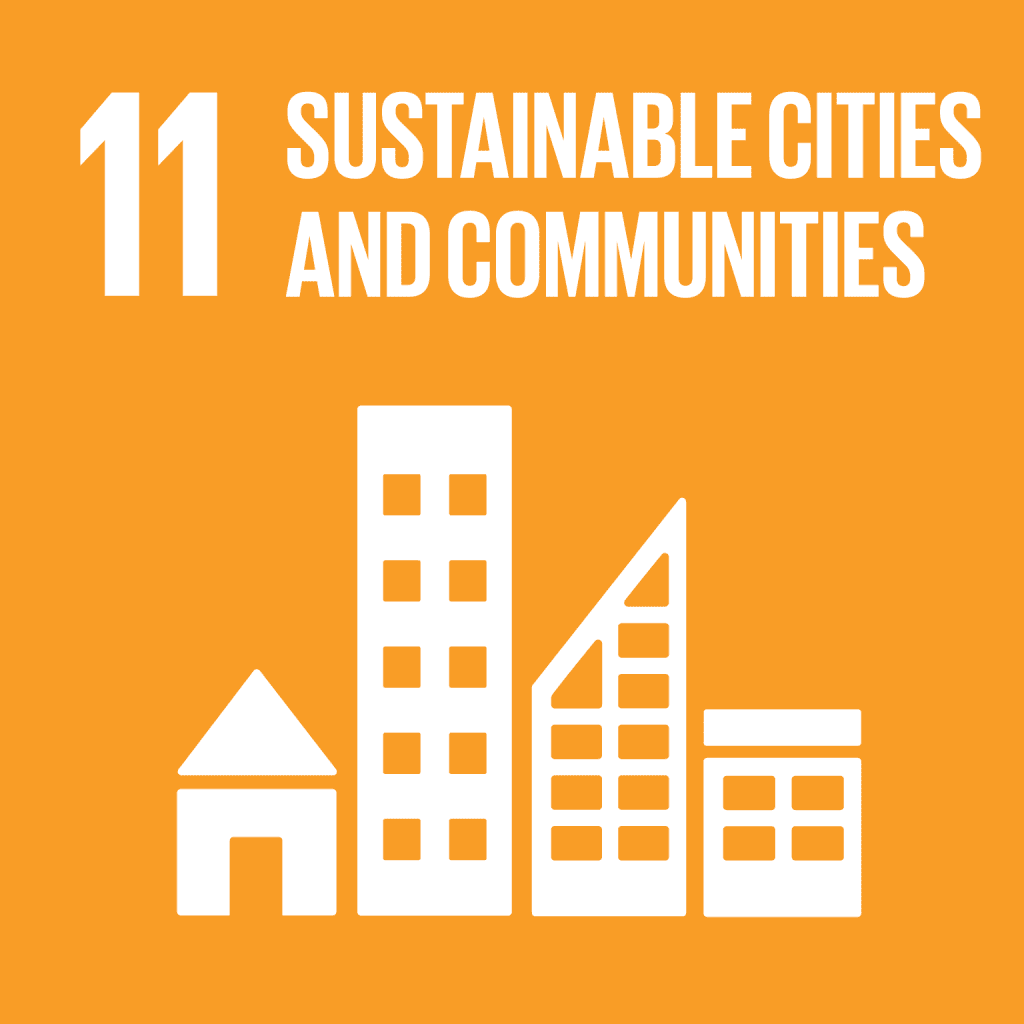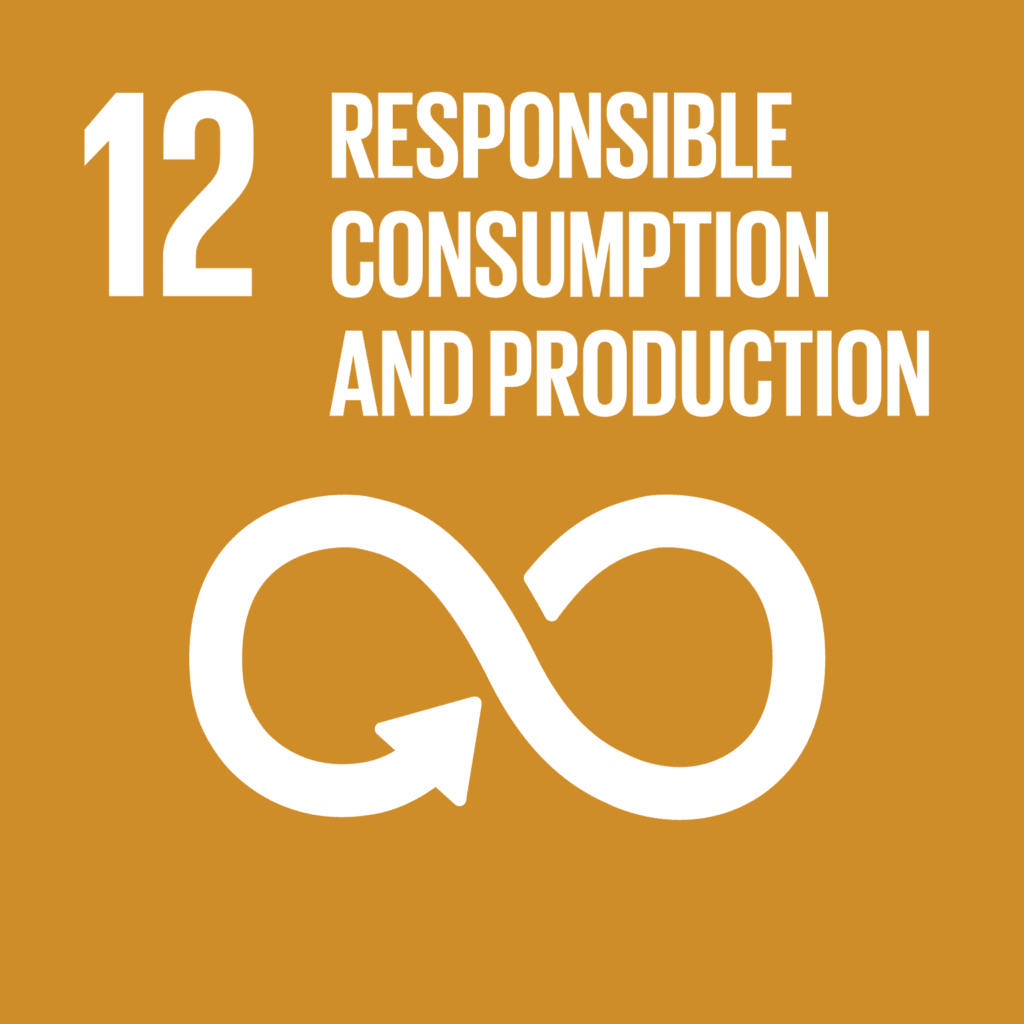Sustainability is a topic that has gained significant attention in recent years. Looking at the behaviours of University of Worcester students in their every day lives can explain the contributions towards sustainability. Written by Katy Boom. Edited by Rosie Bramwell
As we become more aware of our impact on the environment, it’s crucial to understand how we can make changes in our daily lives to contribute to a more sustainable future. This blog post will delve into the findings of a recent survey conducted among University of Worcester students, shedding light on their habits, awareness, and commitment to sustainability.
Key Findings
Daily Habits
The survey revealed that students are generally conscious of their energy consumption, with 73% always or most of the time turning off lights when leaving a room and 57% switching off electrical appliances when not in use.
When it comes to water usage, 70% of the respondents reported always using their washing machine only when they have a full load of clothes. However, limiting time spent in the shower was less common, with only 32% doing this always or most of the time.
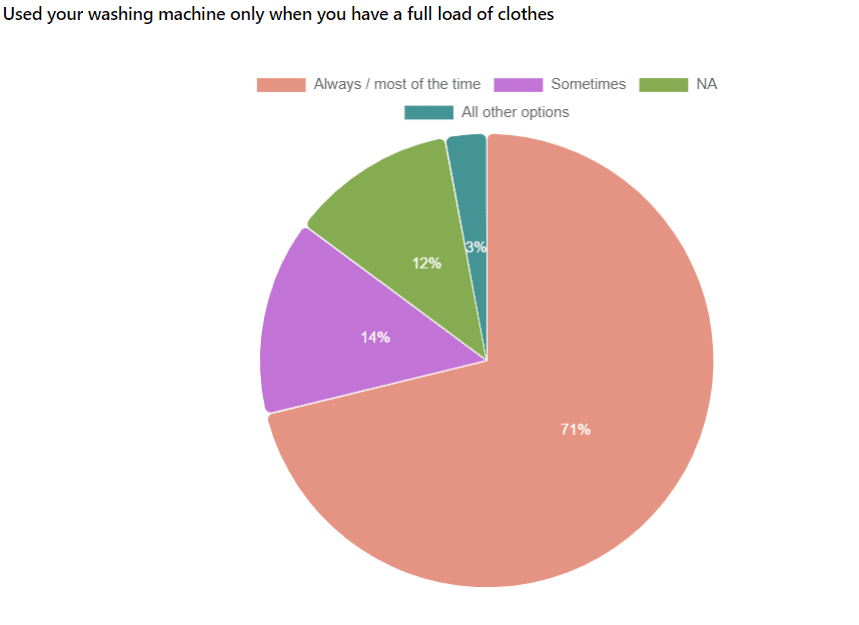
In terms of waste management, 67% of students always use a reusable water bottle, coffee cup, travel mug, etc. However, shopping for items with minimal packaging and checking recycling labels on products before deciding how to dispose of them were less common practices, with only 22% and 46% always doing these, respectively.
Awareness of the University’s Sustainability Efforts
The survey also explored students’ awareness of the university’s efforts to promote sustainability. The results showed that students are most aware of the university’s efforts to conserve energy and encourage sustainable travel, with 35% and 37% being aware and engaged to some extent, respectively. However, more than half of the students were not aware of the university’s efforts to provide Carbon Literacy training.
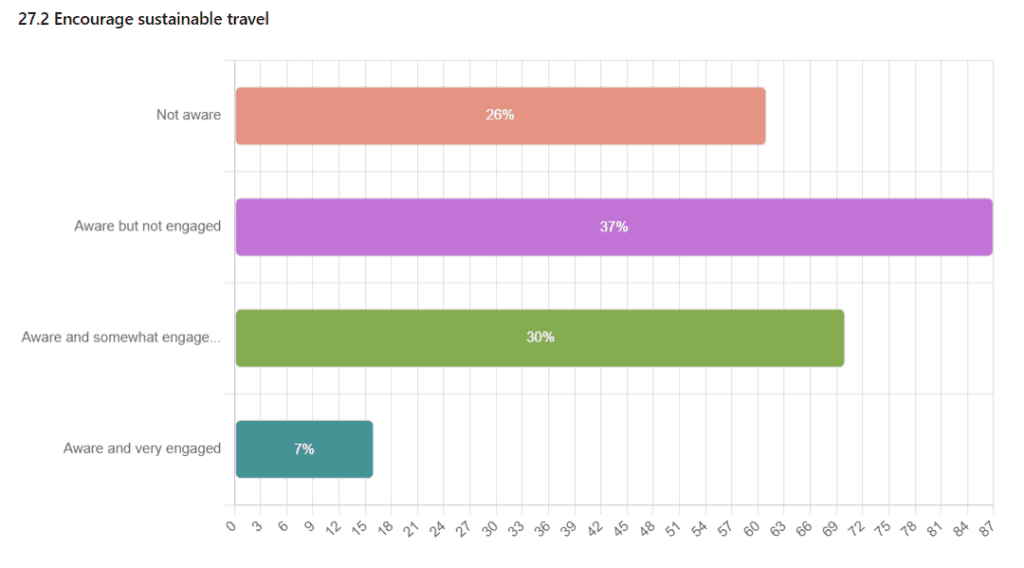
Personal Commitment to Sustainability
When asked about their personal commitment to sustainability, most of the students (70%) reported being somewhat committed, while 18% considered themselves very committed.
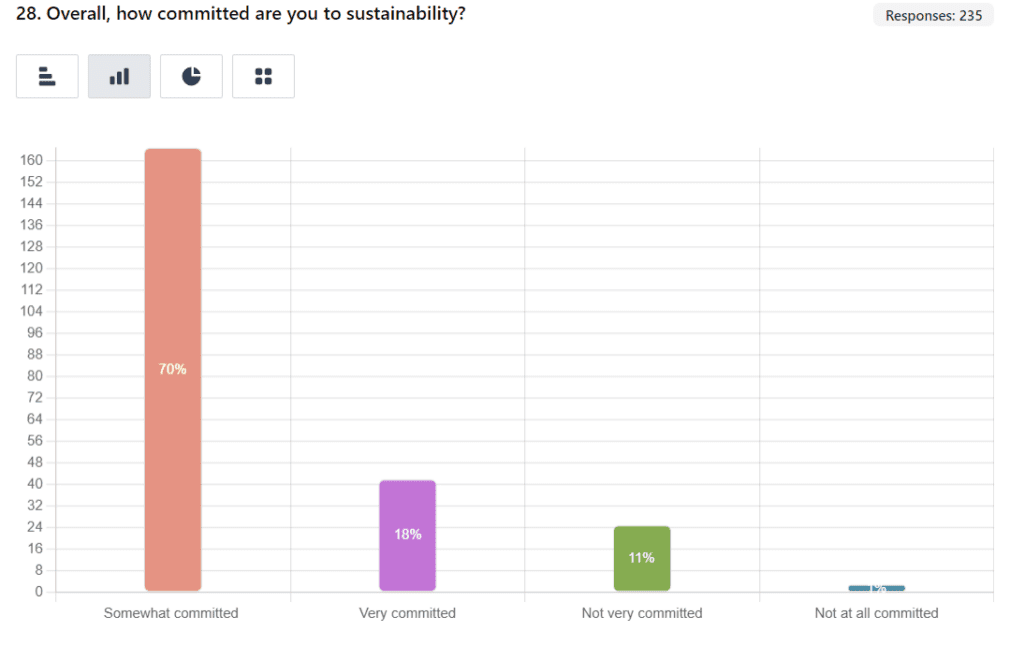
Conclusion
The survey results highlight the importance of sustainability in students’ lives, showing a high level of awareness and commitment to sustainable practices. However, there is still room for improvement, particularly in areas such as water conservation and waste management. Additionally, the findings underscore the need for universities to continue their efforts in promoting sustainability and raising awareness among students.
These insights provide a valuable understanding of students’ perspectives on sustainability, serving as a guide for future initiatives aimed at fostering a more sustainable campus community. After all, every small step towards sustainability counts in our collective journey towards a more sustainable future.
For more insight into sustainability on campus at Worcester check our Sustainability Skills Survey post!
